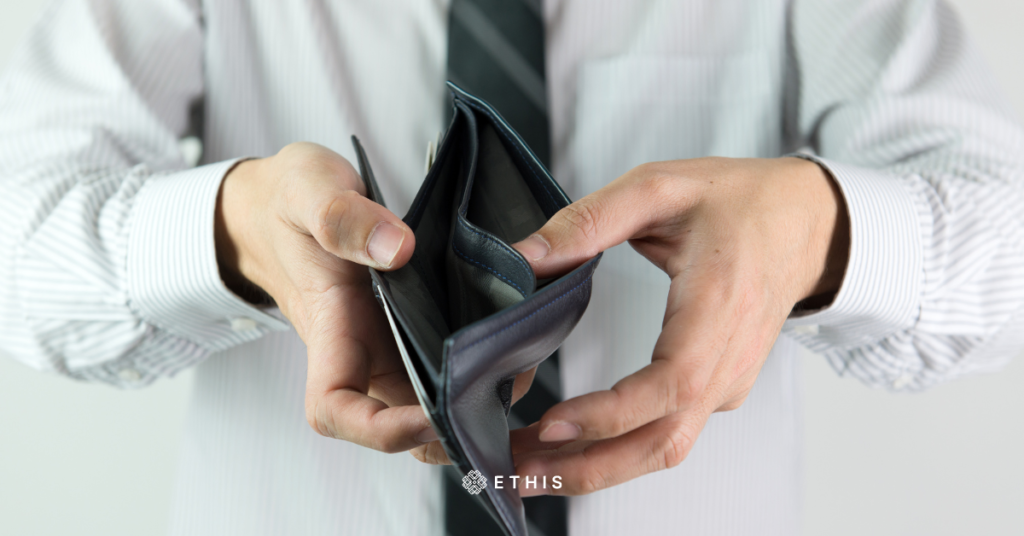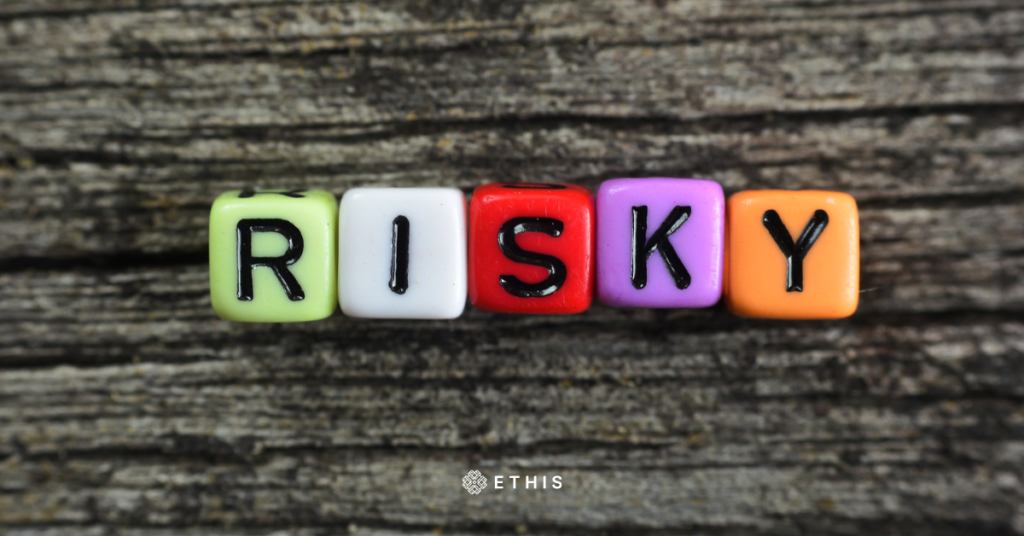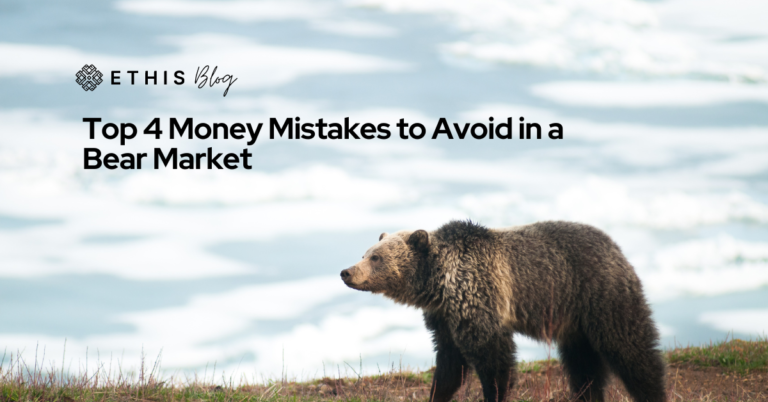
Wallets are tight during a bear market, here are the four common money mistakes to avoid that could damage the future outlook of your portfolio.
Investopedia describes a bear market as a market that has experienced a prolonged price decline of up to 20% or more after a recent high.
Despite this, analysts and investors still can’t tell whether we’ve reached the end of the tunnel or are in the eye of the storm of a bear market, which officially started in June this year for the United States S&P 500, according to S&P Dow Jones Indices.
During this period, major stocks like Amazon fell almost 45% in the middle of 2021, while Meta was down almost 60%.
This is also the first major downturn since the 2008 market crash—albeit not as bad as the 2020—coupled with rising inflation, endless crypto bull runs, and stimulus checks and financial aid.
Investors shouldn’t be alarmed by bear markets which are a normal and healthy part of the market cycle. Though seeing your portfolio drop can be disconcerting, bear markets also offer opportunities to grow and diversify your portfolio.
Just ensure you avoid these four common missteps that could damage the future outlook of your portfolio.
Related: The Rise of the Halal industry and Tech Innovations in 2022
Mistake 1: Cashing in and avoiding volatility


Selling off all your stocks after seeing red in your portfolio during a bear market is the last thing you want to do.
Volatility is scary, especially if you are risk averse, but running with the volatility wave is key and beneficial to the success of your long-term portfolio.
Exiting the market during a period of volatility could be detrimental because you are:
- Selling during a loss—it becomes a realised loss when you finalise your sale. Don’t do this.
- Forgo your chance of participating in future market rebounds. Can’t capitalise on a price hike if you sold off your shares, right?
- A bear market is a good way to purchase stocks at lower prices than normal. You could even add additional shares to increase your shares.
Instead of panicking and cashing in red, relook into your investment strategy to manage the volatility that matches well with your risk tolerance, time horizon, and future goals, at least until the bear market ends.
Related: How to Earn Halal Money? The Money Mindset
Mistake 2: Not having enough money during a bear market


Not shying away from volatility shouldn’t distract you from being caught unprepared in the market.
During a bear market, cash is king, and having enough cash reserves will keep you afloat. As we all know, the biggest risk of investing is losing all your money, including your initial investment and more.
In case of an emergency, you wouldn’t want to be forced to sell your investments to fund your daily living expenses. This is why having or building an emergency fund is necessary.



This fund can help cover any bills or cover unexpected expenses like repairing your car when broken, without you needing to dip into your investment fund.
Generally, multiple online sources say it’s good to save at least six months’ worth of savings or living expenses in your emergency fund to avoid being dependent on your investments.
It is much harder to recover at the bottom of a market cycle, aka the value of the stocks that you sold at a loss, because you’ll have less money invested in the eventual stock market recovery.
Related: Halal Investment: A Beginner’s Guide
Mistake 3: Don’t be too aggressive or get carried away with risky investments


Investing in the riskiest asset during a recession is a recipe for disaster. No matter how great of a risk taker or how savvy of an investor you are, it’s crucial to build some protection into your portfolio.
It’s especially risky to be “chasing” returns when you aren’t too skilled at managing a high-risk portfolio. Go back to the basics and use a formidable 10-year retirement portfolio as an example.
This kind of portfolio typically has a good balance of accumulation and protection assets to spread your risk and ensure that your money doesn’t disappear overnight when the market crashes.
After all, investing is a psychological game, and an excessively aggressive portfolio will take a toll on you, and it’s how people end up losing more money than they can afford to lose.
Remember to pair your risk with your age and retirement because it will depend heavily on both. As you age, you should be taking less risk as you will have less time to recover from a loss.
Mistake 4: Investing in companies you don’t understand during a bear market


Never invest in businesses you don’t understand.
Whether the market is bullish or bearish, investing in companies you aren’t familiar with is a big risk. Just as you wouldn’t marry a stranger, you also shouldn’t invest in businesses that you have yet to research.
Even if you are looking for a high-risk and high-reward deal, you shouldn’t part ways with your money without first understanding the fundamentals and reputation of the business you are investing in.
Though luck may work in your favour at times, eventually, luck will wear out, and so to avoid catastrophic losses during a downside, be sure to research your asset class before investing. Without understanding the companies you own, it’s hard to know what decision to make and when.
A good test of a company’s track record is to see how well it performs during a bear market. Companies with solid fundamentals will have good cash flows, healthy balance sheets, typically outlast bear markets and a sustainable business model that will grow over time.
A bear market will pass too
No matter how difficult a bear market is, eventually, time will pass as long as you allow it to be your best friend. Rather than playing against time, learn how to ride the wave and invest within a bear market.
If you are looking for investment deals with high returns, whether short-term or long-term, be sure to check out campaigns on our website or visit our blog for more informative articles on personal finance, halal investments, and more!





Top Posts
Islamic P2P Crowdfunding Explained
How to Earn Halal Money? The Money Mindset
Halal Investments for Singapore Muslims? It’s time for a shake-up in the Islamic Investments scene.
Smart investment for making Halal money
3 Reasons Why Property Crowdfunding is the Smart Investment for You